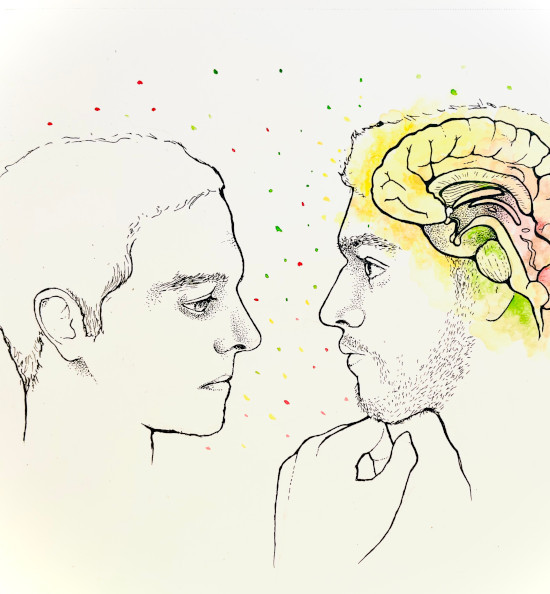The issues of foreign psychology
The Newcomer Compares

Illustration by Gabrielle Funk
Coming to Canada as a person from a Slavic country, my view of psychology was very different from how people here usually think of the discipline.
I was very surprised when, during one of my lectures, we were asked about our associations with psychology. For everyone else, it was the mind, mental processes, clinical psychology.
When I told my friends back home in Ukraine about my psychology class, they were astonished by the way we learn it here in Canada and how different it is from their Slavic view of this science. It was striking, because in Slavic countries such as Ukraine, Russia and Belarus, the perception of psychology is typically negative.
These countries often lack sufficient, affordable mental healthcare infrastructure, and stigma surrounds their use. People who need psychological assistance may be considered weak. Many people in Slavic countries are therefore unable or unwilling to seek out psychological help. As a result, there are high rates of suicide.
For example, from my experience in Ukraine, people tend to drink more alcohol to deal with mental issues, which can often worsen their overall mental states.
It’s not only that people in Slavic countries have the wrong view or do not see the importance of psychology and how it can be treated. These people often also see misguided forms of psychological help talking about stars and magic.
On the Slavic side of the internet, many pseudo-psychologists (who often claim to but don’t hold degrees in the field) share information about magic, astrology and human beings’ energetic fields.
Their views and interpretations of psychology are popular, which may be why many people in these countries often consider psychology to be false and not serious.
People tend to not use mental support services, because there are few actual specialists, and the market is flooded with self-proclaimed psychologists, making it much harder to get a trained professional who can actually help.
Another problem is that counselling is rarely given or recommended. Instead, people tend to use medication and see it as something more effective than therapy sessions.
To solve this problem, people will need many generations, many specialists and licensing systems that will leave the market with no self-proclaimed specialists and will only allow adequate, certified counsellors and psychologists to help people in need.
The Ukrainian government is attempting to set up a robust mental-health system that can help alleviate the problem, but, for now, the state of psychology in Slavic countries is problematic.
Volodymyr Andreiko is a newcomer to Winnipeg from Ukraine. He is a translator and student at the University of Winnipeg interested in music, literature, philosophy and culture.
Published in Volume 78, Number 04 of The Uniter (September 28, 2023)






